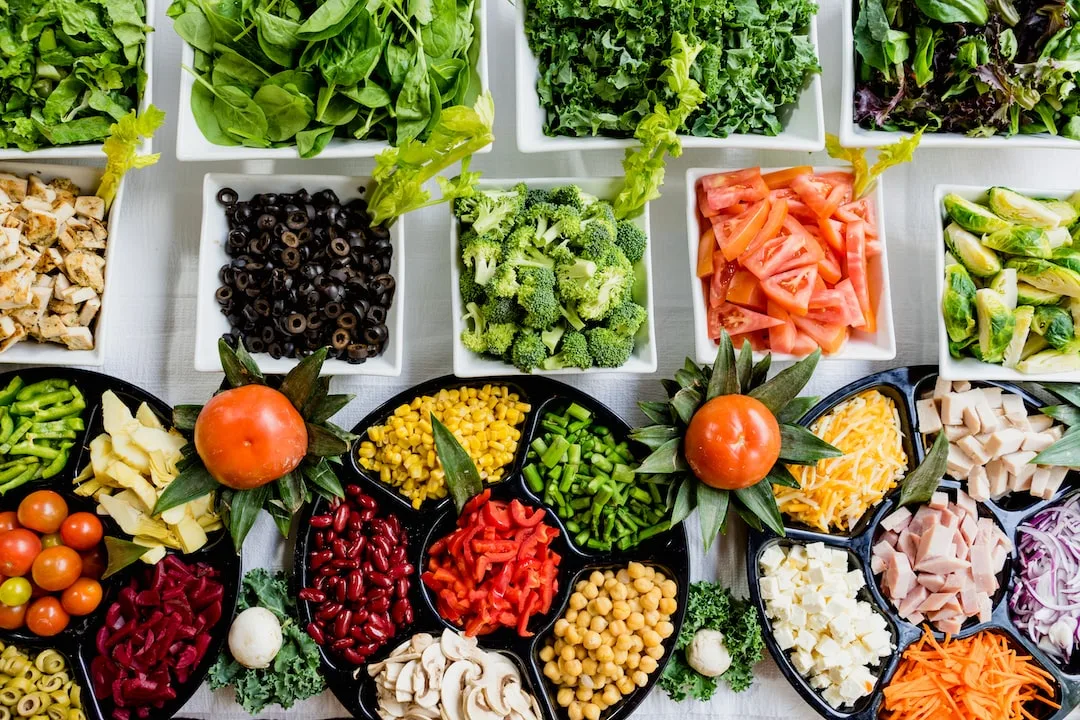The importance of nutrition for overall health is well-known, but did you know that what you eat can also have a significant impact on your brain health? The brain is a complex organ that requires a variety of nutrients to function optimally. In fact, the food we consume can affect our mood, cognitive function, and overall well-being. By understanding the science behind brain food and incorporating specific nutrients into our diets, we can support our brain health and improve our quality of life.
Key Takeaways
- Food has a direct impact on brain health and cognitive function.
- Nutrients like omega-3 fatty acids and antioxidants can improve memory and brain function.
- Serotonin-boosting foods can improve mood and overall well-being.
- Probiotics and fermented foods can benefit the gut-brain connection.
- Mindful eating can improve your relationship with food and your brain health.
The Science behind Brain Food: Nutrients and Their Impact on Mood and Cognitive Function
There are several key nutrients that are essential for brain health. These include vitamins, minerals, and amino acids. For example, B vitamins play a crucial role in brain function by helping to produce neurotransmitters that regulate mood and cognitive function. Minerals like magnesium and zinc are also important for brain health as they support neurotransmitter production and help protect against oxidative stress.
Amino acids, such as tryptophan, are the building blocks of proteins and are necessary for the production of neurotransmitters like serotonin. Serotonin is a neurotransmitter that plays a key role in regulating mood. Low levels of serotonin have been linked to depression and anxiety. By consuming foods that are high in tryptophan, we can support the production of serotonin and promote a positive mood.
Mood-Boosting Foods: Incorporating Serotonin-Boosting Foods into Your Diet
Serotonin-boosting foods can help improve mood and overall well-being. These foods are high in tryptophan, an amino acid that helps the body produce serotonin. Some examples of serotonin-boosting foods include turkey, chicken, eggs, nuts, seeds, tofu, and dark chocolate.
Incorporating these foods into your diet can be as simple as adding some roasted chicken to your salad or enjoying a handful of nuts as a snack. You can also try incorporating tofu into stir-fries or using it as a meat substitute in your favorite recipes. Dark chocolate can be enjoyed as a treat or added to smoothies for a mood-boosting twist.
Memory-Enhancing Foods: How Omega-3 Fatty Acids and Antioxidants Can Improve Brain Function
Omega-3 fatty acids and antioxidants are two nutrients that have been shown to improve brain function and protect against cognitive decline. Omega-3 fatty acids are essential fats that are found in fatty fish like salmon, mackerel, and sardines. They have been shown to improve memory and cognitive function.
Antioxidants, on the other hand, help protect the brain from oxidative stress and inflammation. Foods that are high in antioxidants include berries, dark leafy greens, nuts, and seeds. By incorporating these foods into your diet, you can support brain health and improve memory and cognitive function.
Brain-Friendly Snacks: Quick and Easy Recipes to Keep Your Mind Sharp
Snacking can be a great way to incorporate brain-boosting nutrients into your diet. Here are some quick and easy recipes for brain-friendly snacks:
1. Berry Smoothie: Blend together a handful of berries, a banana, a scoop of Greek yogurt, and a splash of almond milk for a delicious and nutritious snack.
2. Energy Balls: Mix together dates, nuts, seeds, and a tablespoon of nut butter in a food processor until well combined. Roll the mixture into small balls and refrigerate for an easy grab-and-go snack.
3. Roasted Chickpeas: Toss chickpeas with olive oil, salt, and your favorite spices (such as paprika or cumin) and roast in the oven until crispy for a crunchy and protein-packed snack.
Gut-Brain Connection: How Probiotics and Fermented Foods Can Benefit Your Brain

The gut-brain connection is a fascinating area of research that suggests that the health of our gut can impact our brain function. Probiotics, which are beneficial bacteria, and fermented foods can improve gut health and support brain function.
Foods that are high in probiotics include yogurt, kefir, sauerkraut, and kimchi. These foods can help balance the bacteria in your gut and promote a healthy digestive system. By incorporating these foods into your diet, you can support your gut-brain connection and improve your overall brain health.
The Importance of Hydration: How Water and Other Beverages Can Affect Your Brain
Staying hydrated is essential for overall health, including brain health. Dehydration can negatively impact brain function and lead to symptoms such as fatigue, difficulty concentrating, and headaches.
Water is the best beverage for hydration, but other beverages can also be beneficial for brain health. Green tea, for example, contains antioxidants that can protect the brain from oxidative stress. Coconut water is another hydrating option that is rich in electrolytes, which are important for proper brain function.
Mindful Eating: How Being Present during Meals Can Improve Your Relationship with Food and Your Brain
Mindful eating is a practice that involves paying attention to the present moment while eating. It can improve your relationship with food and your brain health. By slowing down and savoring the flavors of your food, you can enhance your enjoyment of meals and promote a healthy relationship with food.
Practicing mindful eating also involves paying attention to hunger and fullness cues. This can help prevent overeating and promote a balanced diet. By being present during meals, you can improve your overall well-being and support your brain health.
Foods to Avoid: Unhealthy Foods that Can Negatively Impact Your Mood and Brain Function
While it’s important to focus on incorporating brain-boosting foods into your diet, it’s also important to be aware of foods that can negatively impact your mood and brain function. Foods that are high in sugar, processed ingredients, and unhealthy fats can lead to inflammation and oxidative stress in the brain, which can negatively impact mood and cognitive function.
Instead of reaching for sugary snacks or processed foods, opt for healthier alternatives. Choose whole foods like fruits, vegetables, lean proteins, and whole grains. These foods provide essential nutrients and support brain health.
Putting It All Together: Creating a Brain-Boosting Meal Plan for Optimal Health and Well-Being
Creating a meal plan that incorporates brain-boosting foods can be a great way to support your brain health. Here’s a sample meal plan to get you started:
Breakfast: Start your day with a bowl of oatmeal topped with berries, nuts, and a drizzle of honey. Enjoy a cup of green tea on the side.
Lunch: Have a salad with mixed greens, grilled chicken, avocado, and a variety of colorful vegetables. Dress it with olive oil and lemon juice for a brain-boosting dressing.
Snack: Enjoy a handful of mixed nuts and a piece of dark chocolate for an afternoon pick-me-up.
Dinner: Cook up a piece of salmon with roasted vegetables like broccoli and sweet potatoes. Serve it with quinoa for a complete meal.
In conclusion, the connection between food and brain health is undeniable. By incorporating brain-boosting nutrients into our diets, we can support our mood, cognitive function, and overall well-being. From serotonin-boosting foods to memory-enhancing nutrients like omega-3 fatty acids and antioxidants, there are many ways to nourish our brains through the food we eat. By being mindful of what we consume and making conscious choices about our diet, we can optimize our brain health and live our best lives.
If you’re interested in exploring the connection between food and mental health, you might also enjoy reading “The Ultimate Guide to Parenting” on MyMannMitra. This comprehensive article provides valuable insights and tips for parents navigating the challenges of raising children. From understanding child development to managing parental stress and promoting maternal mental health, this guide offers practical strategies for success. Check it out here.
FAQs
What is brain food?
Brain food refers to foods that are rich in nutrients that support brain function, such as omega-3 fatty acids, antioxidants, and vitamins.
What are some examples of brain foods?
Some examples of brain foods include fatty fish like salmon, nuts and seeds, leafy greens like spinach and kale, berries, whole grains, and dark chocolate.
How does food affect mood and mental health?
Food affects mood and mental health by providing the nutrients needed for the brain to function properly. For example, omega-3 fatty acids found in fatty fish have been linked to improved mood and decreased risk of depression.
Can certain foods improve cognitive function?
Yes, certain foods have been shown to improve cognitive function. For example, blueberries have been linked to improved memory and cognitive function.
What are some tips for incorporating brain foods into your diet?
Some tips for incorporating brain foods into your diet include adding nuts and seeds to your breakfast, snacking on berries throughout the day, and incorporating leafy greens into your meals. It’s also important to limit processed foods and sugar, which can have negative effects on brain function.







